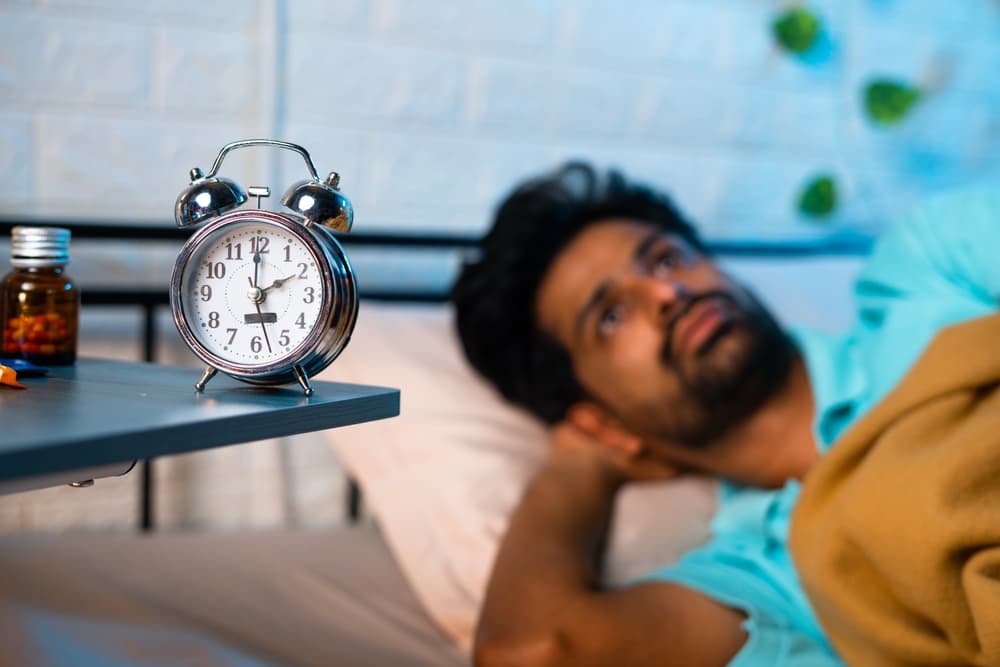We’ve all had those nights—staying up late to binge-watch TV, browse the internet, or endlessly scroll through memes. It’s easy to dismiss it as typical "night owl" behavior. But what if your late-night habits aren't just a preference but a sign of something deeper? You might be dealing with Delayed Sleep Phase Syndrome (DSPS), a condition that disrupts your body’s internal clock.
What is Delayed Sleep Phase Syndrome?
DSPS is a circadian rhythm sleep disorder that interferes with your body’s internal clock. In simple terms, your body struggles to follow the conventional sleep-wake cycle. If you have DSPS, falling asleep at a “normal” bedtime feels nearly impossible, no matter how tired you are. Your body’s internal clock is delayed, signaling that it's not time for sleep until well past midnight—sometimes even until 2 a.m. or 4 a.m.
Living with DSPS can seriously impact your lifestyle. Falling asleep so late means waking up late as well, which can disrupt work, school, and daily routines. In a 9-to-5 world, you might struggle to wake up in the morning, and the effects can snowball, affecting every aspect of your day. Unlike typical night owls, who might choose to stay up late, those with DSPS don't have a choice; their bodies simply refuse to sleep at conventional times.
What Happens When You Don't Get Enough Sleep?
Lack of quality sleep can have severe effects on both mind and body. Constant daytime sleepiness becomes a companion, and brain fog can make focusing on tasks challenging. Over time, DSPS can lead to mood swings, irritability, and even anxiety or depression.
The impact of sleep deprivation extends beyond mental health. It can affect work and personal life, making routine tasks feel overwhelming. For students, this might mean struggling in school, missing classes, or falling behind on assignments. In the workplace, decreased productivity and difficulties meeting deadlines become common.
Chronic sleep disorders like DSPS are also linked to serious long-term health consequences, including an increased risk of cardiovascular issues, a weakened immune system, and a higher likelihood of developing conditions like diabetes. In other words, untreated DSPS can pose significant health risks over time.
DSPS vs. Insomnia: What's the Difference?
People often confuse DSPS with insomnia, but the two are different. Insomnia is characterized by difficulty falling or staying asleep at any time. DSPS sufferers, however, can fall asleep and stay asleep—but only at a delayed time. Once they do fall asleep, individuals with DSPS can experience full, restful sleep, as long as they follow their body’s delayed schedule. Insomnia, in contrast, involves fragmented and unsatisfying sleep patterns.
Is There a Cure for Delayed Sleep Phase Syndrome?
There’s no quick cure for DSPS, but there are strategies that can help reset your internal clock. These steps require patience, consistency, and a willingness to make small lifestyle changes:
Gradual Adjustment: One effective way to reset your internal clock is to gradually adjust your sleep and wake times. Go to bed 15 minutes earlier each night and wake up slightly earlier each day until you reach your desired schedule. This slow shift helps your body adapt without a drastic change.
Optimize Sleep Hygiene: Good sleep hygiene is crucial. Stick to a regular sleep schedule, create a calming bedtime routine, and avoid electronic devices at least an hour before bed. Screen exposure can disrupt melatonin production, which is essential for regulating sleep. Additionally, limit caffeine, alcohol, and tobacco in the evenings.
Use Natural Supplements: Consider taking supplements like Ashwagandha and melatonin to support your efforts. Ashwagandha helps reduce stress and promote relaxation, while melatonin regulates the sleep-wake cycle. Ashwagandha Gummies that combine these ingredients can help you fall asleep more quickly. Always consult with a healthcare professional before starting any new supplement.
Light Therapy: Bright light therapy can help shift the sleep-wake cycle. Exposure to bright light in the morning can regulate your internal clock and promote daytime wakefulness. It also signals to your body when it's time to wind down in the evening, making it easier to fall asleep earlier.
Consistent Changes for Lasting Results
Living with DSPS can feel like an endless cycle of sleepless nights and groggy days, but it doesn't have to be permanent. Small, consistent changes in your routine can help you regain control of your sleep schedule and reset your body clock. While this process requires time and effort, the benefits to your mental, physical, and emotional well-being are well worth it.
FAQs
Can DSPS go away on its own?
DSPS usually doesn't resolve without some intervention. Without changes in sleep habits or professional treatment, your internal clock will continue its delayed schedule. However, gradual adjustments and consistent sleep hygiene can shift your sleep pattern over time.
Is DSPS the same as being a night owl?
Not quite. While both involve staying up late, DSPS is a medical condition that significantly delays the sleep-wake cycle. Night owls might choose to stay up late for personal reasons, whereas those with DSPS experience an involuntary delay in their sleep timing, making it hard to function within a typical daytime schedule.
When should I see a doctor about DSPS?
If your delayed sleep is affecting your daily life, causing excessive daytime sleepiness, or leading to mood disturbances, it’s time to consult a healthcare professional. A sleep specialist can diagnose the condition and develop a tailored treatment plan, which may include behavioral therapy, light therapy, or melatonin supplements.
By addressing DSPS through consistent lifestyle changes, you can work toward a healthier sleep pattern that aligns with your daily life and responsibilities.
Share this article:
